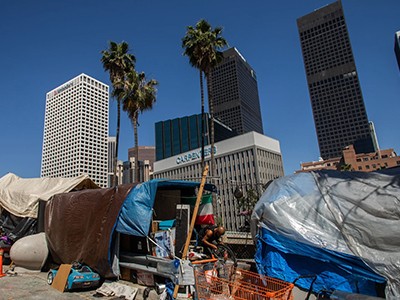
Rising demand for digital applied sciences drives work on the world’s largest transformer provider, in Rugao, China.Credit score: Costfoto/Future Publishing/Getty
Progress: A Reckoning Daniel Susskind Allen Lane/Belknap (2024)
For many years, the worldwide financial system has been rising by 2–5% per 12 months. This development is consuming up ever extra assets, destroying biodiversity and ushering in harmful ranges of world warming. Countless development of this sort isn’t sustainable. What may be achieved? Ought to development be maintained, however otherwise, to guard Earth whereas resolving inequalities and different social issues? Or ought to development be curbed and the worldwide financial system stabilized and even shrunk? These are essential questions with complicated solutions, about which individuals disagree fervently.
In Progress, economist Daniel Susskind delves into the roots of those issues and gives recommendations. His passages placing financial development into historic context are participating. But, for my part, his wider analyses and options are too restricted to make this ebook a very good place to begin for the broad ethical dialogue that he advocates.
Progress, previous and future
Susskind begins by mentioning how financial development is a current phenomenon. For round 300,000 years, whereas societies have been primarily agricultural or succesful solely of subsistence, general long-term prosperity remained kind of stagnant. Then, across the begin of the nineteenth century, one thing unprecedented occurred: the worldwide financial system started a 200-year development spurt.
How wealthy is simply too wealthy?
Why? Economists don’t have any definitive reply, Susskind rightly concludes. He offers an insightful overview of hypotheses, based mostly on elements together with capital funding, technological progress, expert and educated staff, and cultural and institutional circumstances. He highlights the significance of improvements akin to medical science and breakthroughs in transportation and manufacturing. And he stresses {that a} society that’s extra receptive to science can also be culturally higher geared up to use these improvements within the financial system.
Within the aftermath of the Second World Battle, financial development was propelled to the highest of the listing of coverage targets within the West. It was seen as key to rebuilding shattered European economies, and essential to prevailing within the chilly warfare and in creating full employment — an necessary goal for the reason that Nice Melancholy within the Thirties. The thought unfold and went on to develop into a world coverage goal.
Gross home product (GDP) got here to be seen as a measure of the success of a society — and an finish in itself, relatively than a method to an finish, as most economists see it. However this posed a “development dilemma”, Susskind notes. On the one hand, “GDP is correlated with virtually each measure of human flourishing”. On the opposite, the fossil fuels and digital applied sciences underlying this financial development are “climate-destroying, inequality-creating, work-threatening, politics-undermining, and community-disrupting”.

Unlawful gold mining has led to deforestation within the Peruvian Amazon.Credit score: Cris Bouroncle/AFP/Getty
Public discussions about the best way to resolve this dilemma are contentious, even factional. To oversimplify, there are two most important camps. One, championing ‘inexperienced development’, extols the advantages of financial growth and stresses that it may be achieved sustainably. The second, centered on ‘degrowth’, argues that financial development shouldn’t be the answer to social and ecological issues, however the trigger. It holds that these points may be solved solely by a democratically agreed discount in development in wealthy nations.
Susskind refers to his personal place as “weak degrowth”, however spends a lot time analysing the best way to “unleash” development by reforming intellectual-property legal guidelines, growing analysis and growth and getting extra individuals to innovate. He makes a robust argument that society should dictate the path of innovation — in direction of inexperienced applied sciences, for instance — to scale back the detrimental results of development.
But, Susskind admits, laborious decisions will inevitably be required. Selecting whether or not to pursue kind of financial development will all the time have an effect on “different targets”, akin to a wholesome local weather, truthful distribution of wealth, cohesive communities, well-paid and high-quality work and a functioning democracy. To navigate these selections, he suggests, society might want to ask itself some deep “ethical questions” by way of participatory democratic processes akin to residents’ assemblies.
A reckoning
What ought to a reader make of this? Identical to Susskind, I’m no skilled on all of the scientific domains wanted to make such decisions. Nobody is. I’m sympathetic to his comment that it’s not possible to write down on such a broad subject and supply a full and uncontroversial overview of all of the literature. However, in lots of sections, such because the one on GDP, I used to be unconvinced.
I’ve labored in nationwide accounts and on options to GDP. But I used to be confused by Susskind’s argument that economists ought to observe “GDP minimalism”, such that GDP needs to be restricted to measuring the “taxable earnings” of society. He lists many well-known issues with GDP and proposals to broaden its scope, however doesn’t say what precisely he would change.
Why the world can’t afford the wealthy
For instance, Susskind argues that economists shouldn’t broaden the scope of GDP by factoring in damages akin to air air pollution. He bases this on “ethical modesty” — in his view, value-laden decisions don’t have any place in a quantitative metric. But he doesn’t present a complete means of judging what’s in and what’s out. Many sectors that contribute to present GDP figures — akin to tobacco, alcohol, fossil fuels, playing, social media and companies that reap the benefits of monopolies or worth gouging — may also be thought-about immoral. Ought to these be eliminated?
Susskind additionally needs to limit what GDP measures to emphasise “technical diligence”. It’s unclear what that will imply. The amount and high quality of well being companies are laborious to measure, for instance; ought to these be excluded from financial development figures? And the supply of information varies for every nation. Ought to internationally comparable GDP figures be deserted and every nation have its personal definitions? Or ought to economists revert to the bottom widespread denominator, contemplating solely elements for which each nation has satisfactory statistics? The ebook is inconclusive.
Susskind suggests utilizing a dashboard of indicators relatively than adjusting GDP. But, unusually, he doesn’t reference influential dashboards such because the United Nations Sustainable Improvement Targets or its predecessors, the Millennium Improvement Targets, which have existed for many years.
Ethical maze
Deeper issues lurk within the theoretical basis of Progress. 4 issues stand out.
First, the usual view within the literature is that financial development is a method to an finish, not the tip itself. But, with out justification, Susskind frames his arguments round reaching financial development as a objective, alongside others.
To construct a greater world, cease chasing financial development
Second, he argues that, as a result of concepts are infinite, there isn’t a restrict to potential financial development. That is fairly a declare, and he doesn’t present convincing help. He merely factors to the potential combos of atoms and the variety of recipes one might make from a given set of elements. As a result of the variety of variations is big, he thinks it probably that society will proceed to generate sufficient helpful concepts to go on increasing the financial system.
But, a number of the books Susskind refers to undermine that. For instance, Robert Gordon’s Rise and Fall of American Progress (2016) argues that the era of helpful concepts (those who contribute to high quality of life) has slowed for the reason that Nineteen Seventies, and that for this reason we must always not anticipate financial development to proceed.
In drugs, too, the speed of discovery has decreased up to now few a long time. Life expectancy dropped in lots of nations through the COVID-19 pandemic. And plenty of high-income nations are experiencing elevated mortality owing to ‘dangerous’ concepts together with medication, alcohol, quick meals and weapons.
Degrowth can work — right here’s how science might help
Third, Susskind argues that growth-driving concepts are unrestricted by the bounds of a finite planet. But, scientists have proven that six out of 9 ‘planetary boundaries’ — Earth methods, akin to local weather change, that may have an enormous impact on present and future generations — are being crossed (Okay. Richardson et al. Sci. Adv. 9, eadh2458; 2023). Given this, Susskind’s unfounded optimism appears too giant a threat.
Fourth, Susskind’s ‘ethical dialogue’ framing appears restrictive. He’s prepared to sacrifice a little bit of development for the sake of “different” societal targets. However, frankly, I used to be anticipating a deeper dialogue of what constitutes ‘a very good life’ and the way these lives may very well be led in a means that respects the bounds of the planet and takes under consideration different individuals and future generations. I’d additionally anticipate a dialogue of the sacrifices that individuals may must make, by way of food plan, transportation, consumption or taxation. I see no justification that ‘increasing financial exercise by between 0 and x%’ is a legitimate boundary to such a basic ethical debate.
In sum, Progress gives a readable and helpful introduction to the green-growth perspective. There are insightful elements and I help a plea for an ethical reckoning. However the ebook omits essential environmental insights and lacks the robustness wanted for such a foundational debate across the targets of society.






